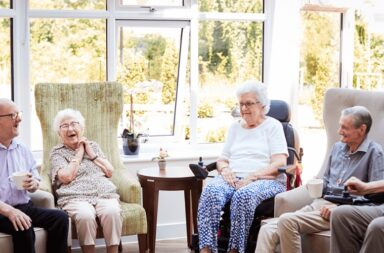Paediatric physiotherapy is supported by those who engage in the area of paediatrics. They are aware of how distinct children are from adults. These medical practitioners are well-versed in the relationship between regular child development and the systems and processes of the body.
While paediatric physiotherapy services employ many general physiotherapy techniques, they also use additional abilities and education in growth and development to treat infants through adolescence.
What is the Purpose of Paediatric Physiotherapy Services?
Whether the reason focuses on physiological or neurological, paediatric physiotherapy focuses on addressing the complete spectrum of problems that might influence a child’s functional movement. When evaluating and treating still-developing bodies, special considerations must be made.
When Would Paediatric Physiotherapy Be Needed for a Child?
Knowing why a kid might require physical therapy will help you decide if your child needs more support. If you don’t realize this, your child might still battle with the physical side effects of genetic, developmental, orthopaedic, or neurological disorders. This article outlines the precise reasons a child could require physical therapy and how physical therapy might alter a child’s way of life.
Orthopaedic Disorders
It is very likely that your child may slip and tumble throughout their youth, which could occasionally lead to injuries. These wounds can occasionally be fairly severe, resulting in fractures and sprains, which may limit their capacity to do strenuous activities. Additionally, your child can be born with specific musculoskeletal disorders like scoliosis, which can impair their mobility and be quite painful for them.
Neurological Disorders
Another instance of a neurological disorder for which your child can benefit from this kind of physiotherapy is cerebral palsy. Children with cerebral palsy, a neurological disorder that lasts their entire lives and can impact how their motor skills develop, struggle to move around freely. The main signs of this illness include limb weakness, altered muscle tone, missed developmental milestones, awkward motions, and tiptoe walking.
Developmental Circumstances
Your child may also require physiotherapy if they have developmental delays, which cause motor development delays in young children. According to reports, 17% of kids between the ages of 3 and 17 have one or more developmental problems. There are several potential causes for missing these developmental milestones, including premature birth, complications during pregnancy, autism, as well as genetic abnormalities like Down’s syndrome. Sometimes, it can simply result from weakness or stiffness in particular bodily parts.
Genetic Conditions
Regarding genetic disorders, children may need the assistance of trained paediatric physiotherapists. Down’s Syndrome is one of the main genetic disorders that can significantly affect a child’s capacity for independent functioning. This is because it has a number of symptoms, such as cardiac issues and a decreased capacity for thinking and learning. Additionally, children with Down syndrome frequently have joint discomfort, muscle weakness, and developmental delays as a result.
How Paediatric Physiotherapy Impacts Children’s Lifestyle?
According to the severity of the challenges, paediatric physiotherapy can affect and improve a child’s lifestyle in various ways. Specialised physiotherapy treatments, when received regularly, can significantly enhance a child’s overall well-being, helping them achieve their next milestone or strengthen a weak limb.
Moreover, a paediatric physiotherapist can assist children with developmental delays to become more adept at managing daily activities like walking, balancing, and even fine motor tasks like writing. Children can gradually but surely acquire the skills to strengthen their respective regions of weakness and reach their milestones through specialist and tailored treatment. A child’s life will be improved physically and mentally since they will have shown themselves that they can accomplish something big.
Additionally, peadiatric physiotherapy services have a wide range of positive effects on a child’s lifestyle for those with autism. Difficulties with balance, hand dexterity, coordination, and core strength frequently accompany autism. For most kids, these can seem like easy things to work on, but for kids with autism, it can be quite overwhelming and perplexing.
Furthermore, specific activities and games can be created to assist a child with autism in managing while enhancing their physical limitations with the help of skilled children’s physiotherapists. This can alter a child’s lifestyle by enhancing their capacity for social engagement.
How To Choose The Right Paediatric Physiotherapy For Your Child?
Target Setting
You must be aware of physical treatment’s impact on your child’s life. Every skill learned in therapy sessions must be practical, interesting, and transferrable to play. Children need to be motivated to work.
Gaps In Understanding
The field of paediatric neurological physical therapy is enormous. The list is endless and includes anything from stand frames to wheelchairs, office chairs to orthotics, spine braces, and walking frames. All decent (and not-so-good) physical therapists will have knowledge gaps, but an excellent one will acknowledge that and will know how to find a solution.
Hardly Any Technical Language
The two most crucial parties in your child’s peadiatric physiotherapy service treatment are your child and you as well, the parent or caretaker. This calls for you to fully understand what your kid is engaged in, why they are doing it, and how it will enhance their abilities, physical fitness, and general quality of life. You should understand all of your child’s medical records, programmes, and reports. Explaining clinical and specialised knowledge to parents in a way they can understand is a specific kind of talent for a physiotherapist. Overusing technical ‘jargon’ is not useful for anyone.
Conclusion
A good relationship between the therapist, child, and parent is given special consideration in paediatric physiotherapy; therefore, open communication and ongoing cooperation are crucial. The outcome directly depends on the active participation, support, and trust of parents for their kids. Additionally, the physiotherapist requires the parent’s collaboration to achieve effective therapy.


